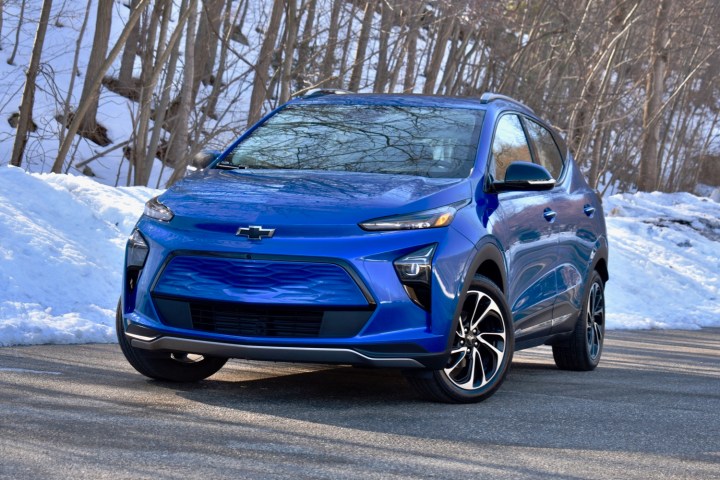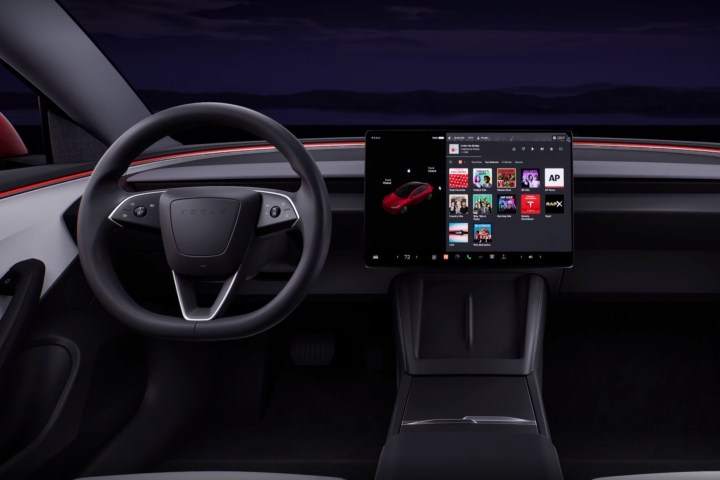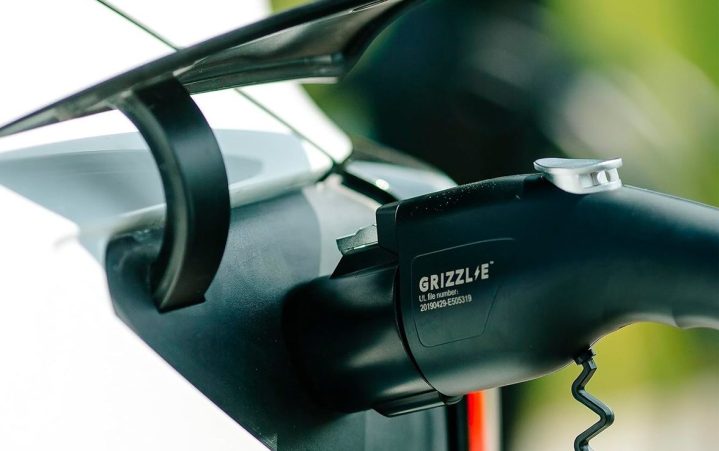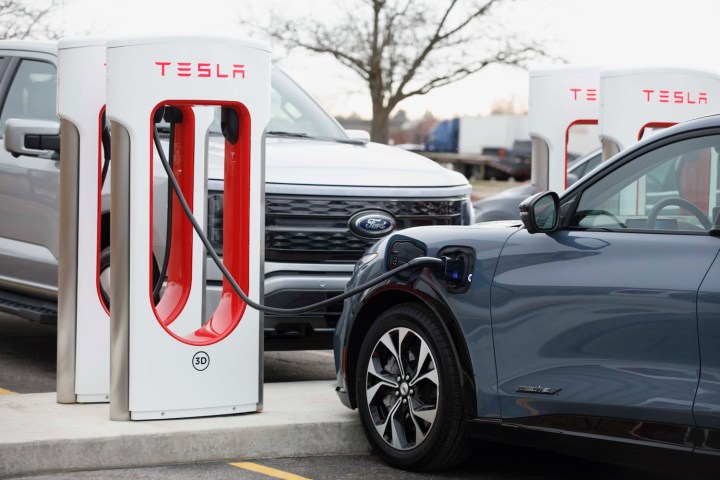
Electric cars are slowly but surely getting cheaper. Over the past year or so, Ford and Tesla have been discounting their most popular electric cars while other brands, like Rivian, are laying the groundwork for all-new cheaper models.
But you’d still be hard-pressed to call electric cars cheap, and buying a completely new car in the first place is a hurdle in and of itself for many potential buyers. According to Statista, used car sales represented around 74% of all car sales in 2022, and while this figure is likely to change as electric cars get cheaper, the fact remains that most car buyers would prefer to save cash and buy used rather than buy something new.
Buying a new car ain’t what it used to be
Buying a car with an electric powertrain doesn’t necessarily need to be all that different from buying an internal combustion engine (ICE) vehicle. But there’s a little more to it than that.

Along with the switch to an electric powertrain, EVs also tend to prioritize software and self-driving tech, heightening the need for better computing power. With the development of new tech advancing more quickly and creating the need for additional processing power, EVs are likely to tend to start lagging behind in features more quickly than ICE vehicles did — much like a four-year-old smartphone may not offer all the features a new phone has. To be clear, new cars have always offered new features — but the rate at which important new features roll out certainly seems to be accelerating.
That’s not to mention that carmakers are quickly improving the core tenets of an electric car. Battery and charging tech is getting better, and considering how important range is, that’s causing new car buyers in general to wait for a new generation of longer-range EVs that can deliver 350, 400, or even 500 miles of range on a single charge. But even once these longer-range EVs start rolling out, it’ll be some time before they’re widely available to buy used.
The battery problem
The improvement of battery tech isn’t the only battery-related issue to consider before buying a used electric car. There’s still a lot of skepticism around the longevity of car batteries, and arguably for good reason. ICE vehicles don’t really diminish in range over time. More or less, a gallon of gas will get you the same distance in a new gas-powered car as it will in the same car 10 years later.

EVs are a little different. Batteries basically start to wear out. After years of charging and discharging a battery, it’ll start to hold less energy and deliver less range. There are things you can do to limit this. For example, it’s better to slowly charge a battery over a long period of time than to use fast chargers every time you need to charge. That means if you can charge at home overnight, for example, your EV battery is likely to last longer than one in a car that someone can’t charge at home and thus has to head to the local Electrify America station every time.
To be clear, some of these fears are a little overblown.
“Data collection efforts are underway to better understand battery degradation, but the average is estimated to be a small percentage of capacity each year, only about 1% to 2%,” said Stacy Noblet, vice president of transportation electrification at ICF, in an interview with Digital Trends, citing Recurrent’s most recent battery degradation report. “It’s something to be aware of, but nothing that should prevent consumers from purchasing used EVs.”
A discussion on EV battery warranties
None of that is to mention that the government mandates that EV manufacturers cover batteries under warranty for at least eight years or 100,000 miles. Now, obviously, those warranties don’t cover normal wear and tear — you won’t be able to replace your car battery every year just because it has a slightly lower range than it used to. But it’s possible that you could get a battery replacement near the end of that life span, depending on the state of your EV’s battery.

“Predictive Modeling by the National Renewable Energy Laboratory suggests that in moderate climates, a lithium-ion battery should last 12 to 15 years,” said Matt Smith, deputy editor at CarGurus, in an interview with Digital Trends. “In extreme climates — especially on the hot end of the extreme climate scale — the battery life may be reduced to 8 to 12 years.”
In other words, if you are buying a used electric car, it may be worth finding out how old the battery is. If it has been replaced at some point, it’s likely to extend the life span of the car, even once its warranty has run out.
It’s also worth finding out if the warranty itself is still active. Car battery warranties can actually be voided for all sorts of reasons, though many of these simply fall under the rule of not using the car the way it was intended. An example of this could be using a car not necessarily built for towing to tow large objects. Some car manufacturers also void battery warranties for owners who fail to keep a car updated — so make sure that you’re consistently updating your car’s software, not just to keep the warranty but also to ensure that you have the latest and greatest battery optimizations.

Assuming the warranty is still valid and transferrable to you as a buyer, it’ll often cover battery repairs if the battery capacity falls under a certain threshold. This threshold will vary from car to car. For example, Tesla will cover battery repairs or replacement if the battery capacity falls below 70% within the eight-year warranty period. That doesn’t necessarily mean that you’ll get a new battery — just that Tesla guarantees a battery above 70%, so you could get a used battery that has held its capacity better. Tesla also sells used cars with a four-year or 50,000-mile warranty, which covers used cars that you buy from Tesla itself, not Tesla cars that you buy from a third party.
Regardless of what the dealer or seller tells you, it’s worth getting the battery properly checked out first.

“You’ll need to have the battery life checked by a certified technician, so your first task is calling local repair shops to find a certified technician. In many parts of the country, not every repair shop is qualified to handle EVs,” said Sean Tucker, senior editor at Kelley Blue Book. “Never buy any used car without having it thoroughly inspected by an independent mechanic you pay yourself. If the seller won’t let you do that, walk away. With EVs, you’ll want to have them check the remaining battery life and use that as a bargaining chip in price negotiations.”
Get out your calculator
The assumption is that buying a used EV is automatically cheaper than buying a new one, but that isn’t always the case. In the case of some EVs, demand is so high compared to supply that used models can be more expensive than new ones — for those willing to pay a premium to jump the line in the buying process. That’s not necessarily all that common, but it does happen with new models that are still ramping up manufacturing.

Sometimes, however, the math can be a little more complicated. That’s because many used EV models aren’t all that much cheaper than new ones, and with other incentives, buying new can actually be cheaper. For qualifying vehicles, the federal government offers up to a $4,000 tax incentive on used EVs, but the incentive is up to $7,500 on qualifying new EVs. That means that the used model will need to be at least $3,500 cheaper than buying the same model new, and that’s not necessarily always the case. Even these incentives are more complicated than you might assume, though.
“The IRS also revamped its used EV tax credit in 2023 to cover 30% of the sale price on a number of models for a maximum credit of $4,000. There are certain requirements — the car has to be more than two years old and purchased from a licensed dealer, and the buyer’s income has to be below a certain level — but it can make the deal even more appealing,” says Kyle Cheromcha, editor in chief of The Drive, in an interview with Digital Trends.
You’ll have to calculate for yourself what the final price of a used EV will be for you specifically, compared with a new model, based on any applicable tax credits.
Things to consider
As you can tell, there’s a lot to consider before buying an electric car. Perhaps the first thing to do is calculate whether it’ll actually be cheaper. After that, buying a used EV can be very similar to buying a new one — and perhaps even easier.

“An inspection on an EV is very similar to that of an ICE vehicle, but the biggest differentiator is when it comes to the ancillary systems,” said Smith. “A car buyer won’t have to worry about things like when the last time the timing belt was changed, when the water pump was replaced, how old the exhaust system is, or whether the cooling system has been flushed.”
That doesn’t mean you don’t have to perform due diligence, though. As Cheromcha said to Digital Trends, it may be worth asking a dealer to give an extended test drive of an EV to allow drivers to test battery capacity and charging speed. While inspecting an EV won’t involve as many components as an ICE vehicle, it could still take a little longer.
Should you buy a used EV?
All four of the experts we talked to agree that used EVs are worth considering and can be a great way to get an electric car at a lower price than new models. The battery can be an issue — but it’s perhaps not as big of an issue as you might assume, and as long as you properly inspect an EV before buying it and don’t mind owning a vehicle that may be a few years behind on the latest and greatest tech, buying a used EV may well be the way to go.



